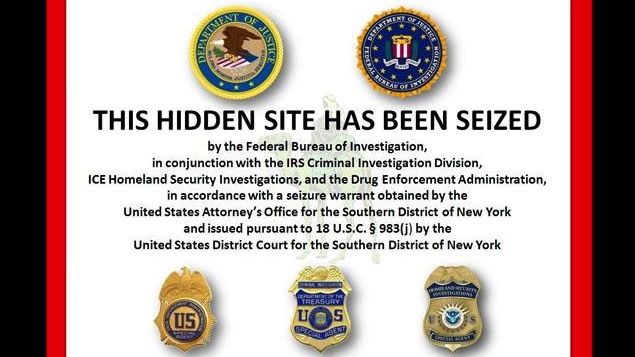Silk Road to ruin: bitcoins, bandits and blackmarket fallout
The dark net just got darker

One of the most bizarre tech stories in years emerged this week, in the wake of the FBI's closure of the Silk Road underground internet portal.
Only accessible by those who know how to configure and use the anonymous Tor network, the site was an open trading place for drugs and other illegal wares. After its shutdown, news came out that the site's founder had been arrested and subsequently accused of trying to organise the killing of a forum member believed to have been threatening to blab to authorities.
And as if that wasn't enough of a tech news crisis, online currency Bitcoin was also implicated, with the cash alternative suffering a mini value crash as holders of the anonymous currency favoured by the site sold holdings due to the negative publicity caused by it being associated with drugs and death plans.
On the less anonymous parts of the internet, the news was greeted with much curiosity. What is the "dark net" they speak of? What is the Silk Road? And where on earth are we going to buy a kilogram of meth amphetamine to get us through the winter now Breaking Bad has finished?
- We have compiled a list of the best bitcoin exchanges
Community of respect
Over at the Guardian, some mourned its loss, claiming the use of feedback among Silk Road drug dealers resulted in a safer service for much maligned drug traffickers. User Masaki pointed this out, with his brave claim that: "Now more people will be forced to buy on the streets in a totally unregulated market," later responding to criticism of his stance with: "It was regulated by its own market, much in the way you don't buy from a dodgy eBayer. If you sold crap, then you had crap feedback and therefore, zero people would buy from you."
He was really on a mission to defend it, too, continuing as if he was the notorious founder Dread Pirate Roberts himself, adding: "There is/was a real self-regulatory community of respect, and a framework of quasi-honesty between customer and vendor, and that's to be applauded. There were financial systems in place to protect both buyer and vendor."
So there you go. They were trustworthy anonymous drug dealers. You could get an extended warranty and everything.
Are you a pro? Subscribe to our newsletter
Sign up to the TechRadar Pro newsletter to get all the top news, opinion, features and guidance your business needs to succeed!
Sense of closure
At Venturebeat, news of the Silk Road's founder's alleged attempt to hire a hitman to whack a rogue member encouraged a debate about libertarianism, where user DigitalAndroid stuck it to the state by pointing out that: "Billions of dollars worth of caffeine, alcohol, nicotine, and a cadre of psychiatric drugs are legally sold to people who are addicted to them." And no one tries to close down our late night off licenses or the chemist bit in Tesco, do they?
If you still want to buy crack by the kilo and have it delivered, Business Insider ran an absolutely astonishing piece in which it wrote a bloody list feature on viable underground alternatives to Silk Road. One of them has already closed down, but still. This led commenter Bahahalol to point out that: "There are tons of these sites out there and tons more will follow. Just like every other criminal marketplace it is a game of whack a mole."
He also made the smart point that it's the IT guys running the sites that tend to get the jail time, while the dealers and buyers just disappear and take their Bitcoins and non-sequential used real bank notes to the next marketplace, usually escaping action.
Silk cut
TechCrunch, no doubt knowingly because it's a bit edgy like that, ran a piece in which it defended Silk Road's right to exist, as it felt that it seems vaguely wrong in some way that the government can shut down what's essentially just a hidden forum.
This didn't go down well with commenter Ciaranj1, who responded with: "So we can't pass moral judgement on a marketplace that allows people to plan assassinations? Cool, you won't mind if I rob your house and then burn it down."
The closure of Silk Road also had ramifications for popular anonymous virtual currency Bitcoin, the method of payment used by the site thanks to its apparent uncrackable anonymity. In a Bloomberg thread talking about the possible problems faced by the currency now it's been exposed as a favourite of criminals, reader Buzz Leapyear2 highlighted how bad people paying money for things isn't actually a new concept, saying: "How many places is the 'Dollar' used illegally? Everything from drug trafficking, human slave trafficking, paid hit squads, illegal weapons trades, unconstitutional wars, etc. etc. etc."
He then did some swearing we'll save you from as there's no need for it, not even when discussing drug enablers.
The point being that all currencies can be illegal and anonymous if you are careful enough and wear masks, fake glasses, hats and so on when meeting up to conduct your business. All that's new is people are now doing it from home on the computer instead of in pub toilets.
- Inflame is TechRadar's weekly gander at the web's wonderful comments. Get more here.